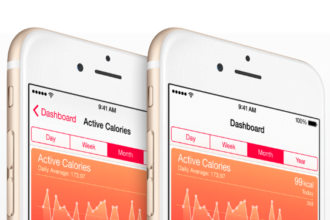 Private, personal information can be bought and sold on the black market for as little as fifty cents to a dollar, according to a report from Fox Business.
Private, personal information can be bought and sold on the black market for as little as fifty cents to a dollar, according to a report from Fox Business.
 Private, personal information can be bought and sold on the black market for as little as fifty cents to a dollar, according to a report from Fox Business. But personal medical information can go for much higher prices, creating a market for criminals looking to defraud insurance companies of exorbitant sums of money. Overall, about $40 billion in annual health care fraud can be attributed to medical identity theft. As a result, consumers need to take extra efforts to ensure their personal information is protected from medical identity theft. The best way to guard yourself is to understand the methods through which criminals try to acquire this sensitive information.
Private, personal information can be bought and sold on the black market for as little as fifty cents to a dollar, according to a report from Fox Business. But personal medical information can go for much higher prices, creating a market for criminals looking to defraud insurance companies of exorbitant sums of money. Overall, about $40 billion in annual health care fraud can be attributed to medical identity theft. As a result, consumers need to take extra efforts to ensure their personal information is protected from medical identity theft. The best way to guard yourself is to understand the methods through which criminals try to acquire this sensitive information.
1. Don’t give information over the phone
The telephone is a prime channel for criminals attempting to defraud private individuals. They typically pose as insurance companies, medical clinics, doctors’ offices or other institutions to solicit your private information, according to the Federal Trade Commission. Be very hesitant when revealing this information over the phone. Ask for additional information to verify their identity, and if you can’t confirm the individual or the organization, explain that you simply aren’t comfortable giving that information over the phone. Most legitimate medical entities will understand this concern, while scam artists will be frustrated and thwarted.
2. Pay close attention to medical bills and statements
You should keep a close eye on the paper trail of your medical bills, services and statements. When criminals steal your medical identity, they can’t cover up all evidence of this fraud. Services billed to your insurance company, for example, will count toward your deductible and/or coverage limits and show up on statements. Bills from the doctor’s office should also be closely watched.
Once you’ve thoroughly reviewed this information, shred the documents before throwing them away. Billing statements and other documents can be a source of your private information for criminals who go dumpster diving in hopes of finding opportunities to defraud.
3. Enlist the help of identity protection and monitoring services
Pursuing protective and preventative services is one way to protect your identity before you suffer the ill effects of fraud. Companies like LifeLock specialize in monitoring your activity and protecting clients from being defrauded in the first place. If your personal information is stolen and used for these purposes, identity protection services can pick up on this criminal activity right away, putting an end to theft, thus minimizing its negative impact on your finances. These services should not stop consumers from shredding sensitive documents and employing safe habits, but they can be an excellent supplement offering protection where the typical person is exposed.
4. Investigate inaccuracies and strange listings on your medical record
Your medical record follows you wherever you go, and it lists all of the conditions, injuries and other medical activity you have experienced over the years. When someone uses your medical identity for their own purposes — such as gaining access to prescription drugs — this activity is recorded on your medical history. If you are suspicious of possible medical identity theft, inconsistencies and inaccuracies on your medical record could point to instances of fraud. You can always ask your doctor for your medical records, so if you’re ever in doubt, pull them out and take a close look.
(medical identity theft / shutterstock)








